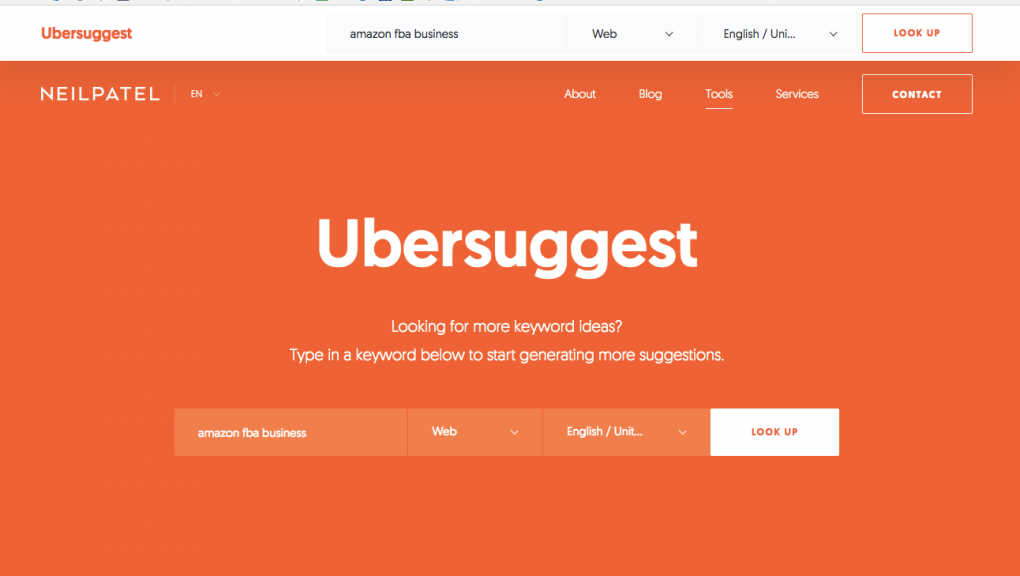How to Use UberSuggest and Answer the Public to Expand Your Keyword Research
Are you saying what you need to say?
It’s a question that online business owners should be asking themselves when analyzing and planning future content for their blog in order to create a real asset.
After all, the name of the game is not simply more content, but content that meets a need, answers a question, or engages with and provides value to your target audience comprised of potential clients.
These individuals come to your business because you provide usefulness to them in the form of information. Over time, the challenge becomes continuously doing so without becoming stale or irrelevant.
Most online entrepreneurs use keyword research and even set up Google Alerts for these keywords to get a handle on what their content focus should be. However, simply viewing keywords and comparing costs per click (CPCs) does not necessarily help you answer the core question posed at the beginning: Are you saying what you need to say?
Or put differently, are you saying what your readers need to hear?
Luckily, finding the answer to those questions doesn’t have to be pure guesswork. Using readily available (and did I mention free?) tools like Ubersuggest and Answer the Public can help provide clear-cut data around which keywords you should be targeting, and spark ideas for more ways to deliver content that people are already looking for.
Here we’ll take a look at both of these tools and discuss ways that you can use them to create content strategies that will attract even more potential customers through organic searches.
Ubersuggest: Get More Keyword Data
If you’ve never heard of Ubersuggest, you might think it is yet another way Uber is expanding its car sharing service into other areas of our lives (the jury is still out on how I feel about Uber Eats).
In actuality, Ubersuggest is a brainchild of Neil Patel; the free tool lives on his website and provides a plethora of useful data.
How it can help you?
Using Ubersuggest is simple and straightforward: Type in your seed keyword (the base foundation for your search engine optimization, or SEO) and select the area of focus (web, image, shopping, YouTube, news). Ubersuggest will then generate a list of related keyword suggestions that show the search volume, CPC, and competition. As well as showing you the other content that ranks page one of the search engine results pages (SERPs).
For each metric, you can see additional data, such as the seasonality of particular searches, and the ratio of organic to paid clicks for a particular keyword as well. This data can give you ideas on not just topics to tackle in your content, but also when to publish on those topics.
You can adjust the results you get in various ways –– by filtering, setting negative keywords, or including/excluding suggestions generated from Google services.
Once you have narrowed down your list, you can then copy or export it as a CSV file for safekeeping.
How to use it
Whether you are brainstorming an initial content marketing strategy or tweaking your existing one, this tool can help in two ways: by giving you a closer look at the relevant data around your keywords or to see what other ways you could tweak or spin your keywords to grow your organic traffic and answer the questions people are already asking. Understanding these things can help you know if you are spending your time and money on content wisely.
For example, you might notice that a related keyword has high relevance to your site, but low competition, meaning you have a better chance of ranking higher for it. You might choose to direct your content creation around those keywords so as to better perform in searches.
Having this information can help you make sure you are writing about what people are already looking for, and choose the places where you are most likely to stand out.
Answer the Public: Get Strategically Creative
Should you enjoy the notion of asking an impatient man to help you look around the internet with a magnifying glass for ideas, you will probably enjoy the interface at answerthepublic.com
It acts like an autocomplete tool. It also shows you visualizations of what people are searching for with your keyword in it.
How it can help you?
Perhaps the biggest difference between Answer the Public and other keyword research tools is the way it delivers your results. Taking your seed keyword and generating results with questions, prepositions, comparisons, and alphabeticals, it spits out visual diagrams to show you the search terms, which can make interpreting the results a little easier.
Each of those terms are also clickable, so that you can immediately see the Google search results for that term.
All of this content is also downloadable as images and/or spreadsheets, so you can store and reference it later.
How to use it
The auto-suggest results come from both Google and Bing, so you can see what questions your content should be answering.
Results from this tool can be a fantastic jumping off point for developing content, since it gives you a look into the types of phrases and queries are already related to your keyword. For example, if a related phrase for your seed keyword “Amazon FBA business” is “how to start an Amazon FBA business,” you might consider developing some content around that topic.
Plus, the links out to the Google search results can help you quickly investigate and identify what competitor content is ranking highly, and what content you might want to focus your attention on developing in order to gain traction.
Use Keyword Research to Target Your Content
When planning content for your site, you don’t want to waste your time creating stuff that no one wants to read in the first place. That’s why it makes much more sense to work backward: figure out what people already want to know with regard to your topic, and create the content that meets that need.
To get hard data that can help guide your research and content development, spend some time with Ubersuggest. There, you will not only get a sense of the competition, volume, and seasonality of your search terms, but you will also see which terms might be more realistic, or worth your time going after based on the existing competition and cost. For example, if you’re a new site it might be better for you to target long-tail keywords. You can also get a sense of the financial investment that might be required to get the clicks you want.
Additionally, play around with different search terms on Answer the Public so you can anticipate the types of related questions and queries that come up around your seed keyword. If you are hurting for content ideas, and want to make sure that your writing is meeting a need, reviewing the graphs and lists generated by Answer the Public may help you determine which ideas will be most likely to attract readers.
Obviously, neither of these tools will provide you with a silver-bullet solution for your content planning. And there are plenty of other marketing tips for your online business, too. However, taking the time to get a better sense of what people are searching for makes it much more likely that you can build the content necessary to help them find you.
Photo credit: leungchopan








